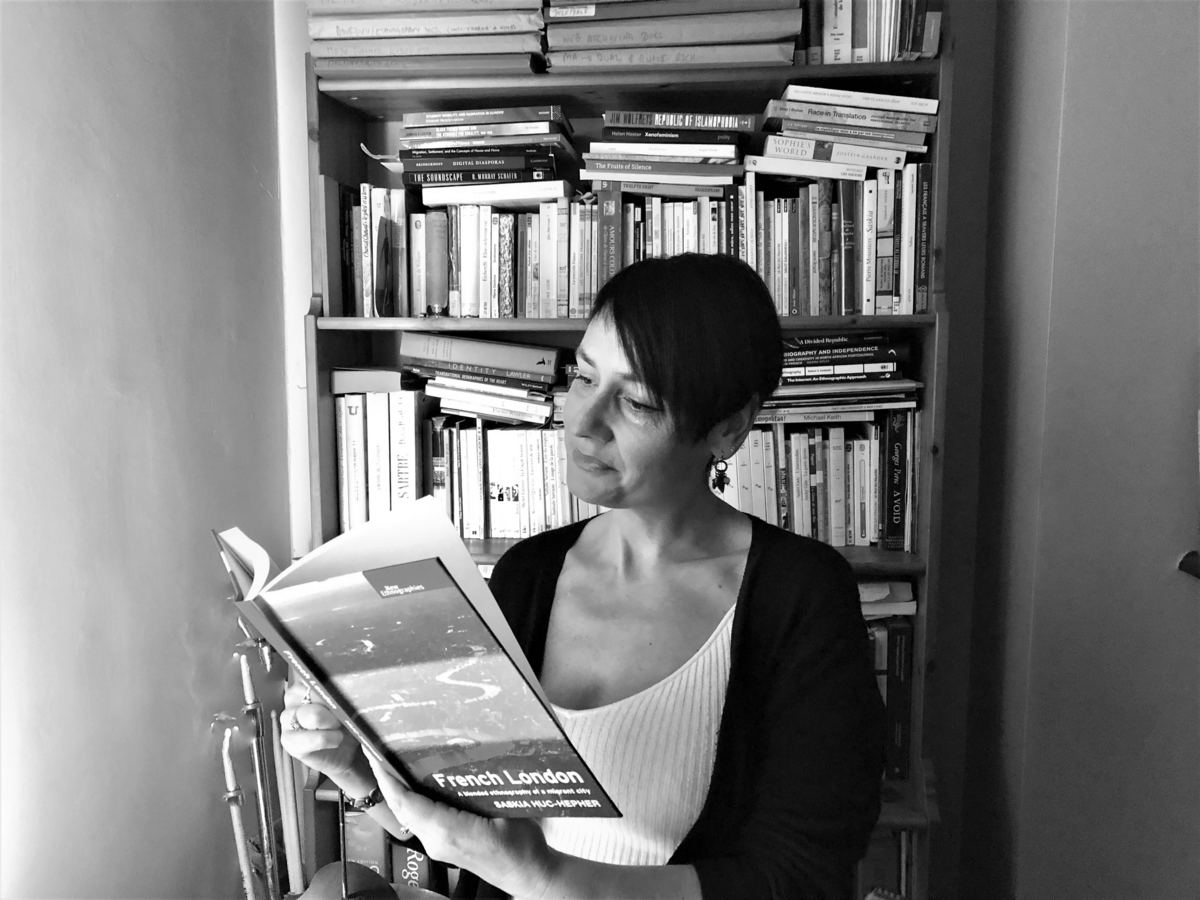The first meeting in 2022 will take place at the School of Advanced Study, Institute of Historical Research, University of London, June 13-15 2022.
All keynotes will be open for everyone.
View the programme here.
Monday 13 June 15:30-16:30: Keynote by Saskia Huc-Hepher, University of Westminster, UK
Title: From Teddy Bears and Cyborg Witches to Oysters and Pink Elephants: A xenofeminist remedy for the mal d’archive and other binary troubles

Title: From Teddy Bears and Cyborg Witches to Oysters and Pink Elephants: A xenofeminist remedy for the mal d’archive and other binary troubles
Bio: Saskia Huc-Hepher is a Reader in Transdisciplinary French Studies at the University of Westminster, and on the editorial team for Digital Modern Languages (Modern Languages Open). She was a researcher in the AADDA and BUDDAH digital humanities’ projects and curator of the London French Special Collection in the UK Web Archive. Her research focuses on questions of identity and belonging among London’s French diaspora in on-land and on-line contexts. Her first monograph, French London: A blended ethnography of a migrant city, was published with Manchester University Press in 2021.
Abstract: In the opening lines of Jacques Derrida’s seminal Mal d’archive (1995), the intrinsic duality of the archive is held accountable for its ‘trouble’. From its very incarnation as ‘archive’, stemming from the Greek arkhḗ, meaning both commencement and commandment, the archive is deemed to suffer from its conflicted essence: simultaneously beginning and end, personal and institutional, public and private, a ‘totality’ and ‘fragments’ (Foucault, 1969: 179). In the case of web archives, the affliction is exacerbated by online/offline, digital/physical, open/closed, global/local dichotomies. However, as Derrida later suggests, the sickness (or mal) produced by the archive is also associated with desire and the irresistible pull of the past, a bittersweet merging of lovesickness and homesickness. In this talk, I will explore this more positive understanding of the archive’s embodied dualities. By applying a progressive, if disruptive, xenofeminist lens to the UK Web Archive, I will show how multilingual, diasporic micro-archives serve to queer the anglophone “patriarchive” in their dismantling of steadfast binaries and implicit postcolonial hegemonies. Moreover, based on my own experience of curating the London French Special Collection, I will demonstrate how migrant women’s blogs can be apprehended as a technomaterialist, trans-inclusive XF act and how their increasingly multimodal translingual affordances challenge the troubling effects of the archive’s in-betweenness.
Tuesday 14 June 9:30-10:30: Keynote by Sandra Folie, University of Vienna, Austria
Title: Humans are ready to use some web archives”: Working with the Wayback Machine and Wikipedia’s history pages in the not-so-digital humanities

Title: Humans are ready to use some web archives”: Working with the Wayback Machine and Wikipedia’s history pages in the not-so-digital humanities
Bio: Sandra Folie is an assistant professor (Universitätsassistentin) at the Department of Comparative Literature at the University of Vienna. Previously, she was a doctoral fellow of the Austrian Academy of Sciences. In her first book, Beyond Ethnic Chick Lit (transcript, forthcoming), Folie examines the marginalisation and homogenisation of contemporary popular literature by women through gendered as well as ethnicised labelling practices and corresponding marketing strategies. Her writing has also appeared in Aussiger Beiträge,International Journal of Digital Humanities, Open Gender Journal, and Textpraxis, as well as in several edited volumes and reference works. Folie is the co-editor of Vom Sammeln und Ordnen (Weidler, 2022) and New Perspectives on Imagology (Brill, forthcoming). She is currently working on her postdoc book project on literary blackfacing and critical whiteness in 20th century German literature.
Abstract: The title of my keynote refers to Kees Teszelszky’s (2021, 1) claim that “humans are not ready to use web archives and fully understand and make use of the possibiliAes the data in these web collecAons offer.” Although I agree in principle, I want to emphasize that not all web archives are the same. Whereas digital humaniAes researchers are usually more interested in web archives beyond the widely known Wayback Machine, oZen enough the world’s most extensive web archive (“more than 670 billion web pages saved over Ame”) actually is new territory for students and scholars in the not-so-digital humaniAes. The same applies to Wikipedia’s history pages, which document the genesis and development of all arAcle and discussion pages in Wikipedia. Both archives are publicly accessible, not Aed to a specific locaAon, and relaAvely easy to use – even for those who do not fully understand them or have the skills to systemaAcally analyse their large amounts of data. To narrow down the overwhelming abundance of possibiliAes, it is first important to normalise the use of publicly accessible web archives at universiAes.
In my talk, I will use the chick lit genre as a case study to show the value of including web archives in research on contemporary literary phenomena. Chick lit emerged in the second half of the 1990s with bestsellers such as Helen Fielding’s Bridget Jones’s Diary and Candace Bushnell’s Sex and the City (both 1996), at the same Ame as the online sphere devoted to literature developed. This means that some of the very first adverAsements and definiAons of chick lit were published online. The Internet, or rather the people on the Internet, suddenly became important players in the business of selling and reviewing books. Moreover, since chick lit is a relaAvely long-lived contemporary phenomenon, we can look back on several decades of online presence and development, some parts of which have been archived.
References
Teszelszky, K. (2021). Introduction: digital humanities and the use of web archives. International Journal of Digital Humanities, Special Issue: Digital Humanities and Web Archives, 2(1–3), 1–4. https://doi.org/10.1007/s42803-021-00040-5
Hartelius, E. J. (2020). The anxious flâneur: Digital archiving and the Wayback Machine. The Quarterly Journal of Speech, 106(4), 377–398.